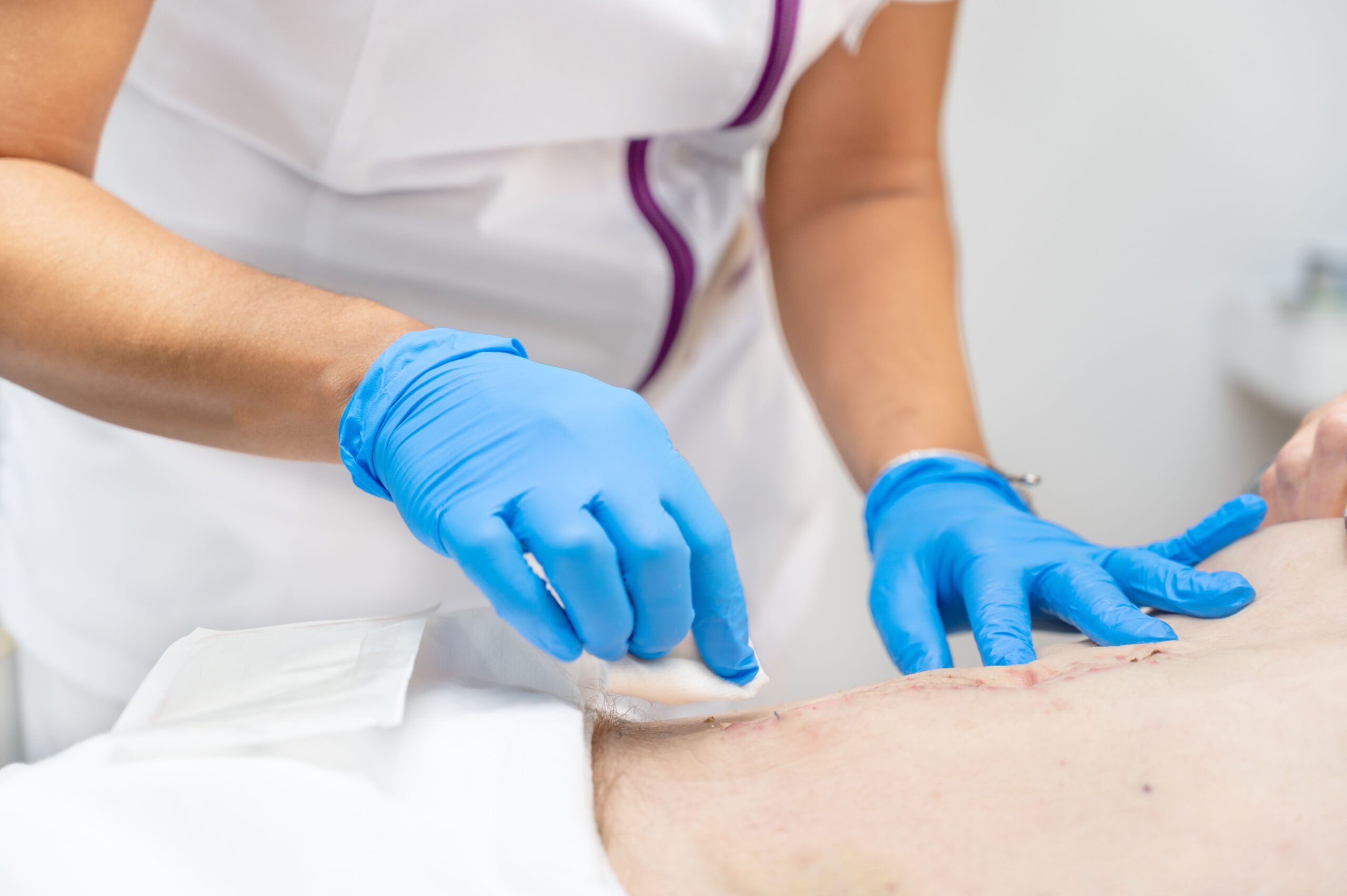Image Credit: © herraez – stock.adobe.com
A new review has analyzed how psychological stress may impact proper wound care and healing.1 Prior research has already confirmed that stress disrupts cytokine signaling, immune cell function, and fibroblast activity, thus impacting all phases of wound healing.2 However, this new literature reveals that chronic stress also impairs collagen production, making scar treatments less effective.
A team of researchers conducted 2 search rounds on PubMed and PubMed Central. All eligible studies were peer-reviewed and published in English. After the full review process, 96 studies were included in the final analysis. Each article examined biological, mechanistic, or clinical links between psychological stress, skin wound healing, collagen synthesis, or scar treatment outcomes.
Collagen types I and III are the main proteins involved in supporting the reticular dermis and scar tissue when a wound occurs.3 A proper balance of collagen synthesis, remodeling, and degradation is necessary for effective scar and wound healing. Genetics, diet, age, UV exposure, and fibroblast activity can have an effect on this.
Furthermore, it was found that prolonged changes in the sympathetic nervous system, endocrine system, and immune system can impact healing. When the sympathetic nervous system is activated in response to stress, epinephrine and norepinephrine are released, which increase heart rate and blood pressure. Although these responses are typically short-term, they leave the body in a state of readiness instead of repair, influencing immune function and healthy skin tissue regeneration.
Stress-induced overactivation can also worsen inflammation and slow keratinocyte migration. Chronic stress can lead to cortisol dysregulation and glucocorticoid elevation, creating a limited ability to ease inflammation and maintain the integrity of the tissues. One study in particular found that topical application of glucocorticoids reduced type I and type III collagen mRNA levels by 70%, decreasing collagen production by 80%.
Researchers observed that several wound and scar treatments can be impacted by high levels of stress, leading to reduced efficacy. Collagen-stimulating therapies such as subcision and chemical peels can be impacted when neocollagenesis, inflammatory signaling, and tissue remodeling are impaired by stress. Patients may experience slower healing and less visible improvements.
Collagen-dependent treatments, including dermabrasion, resurfacing lasers, and surgical scar revision, rely on proper wound healing to be successful and lead to positive cosmetic results. It was found that slowed regeneration and collagen deposition may occur when stress disrupts the body’s systems, negatively impacting these processes. Psychological stress may also weaken skin and create vasoconstriction, limiting oxygen and nutrient delivery to the impacted areas. The investigators also noted the bidirectional relationship between stress and scarring.
“While stress impairs healing, scars themselves can perpetuate psychological distress, creating a detrimental feedback loop,” the authors wrote. This burden on patients’ mental health further emphasizes the need for more comprehensive wound treatments that address physical and psychological healing.
The authors advised dermatologists to refer to evidence-based interventions such as breathing exercises and mindfulness practices that can reduce stress in-office and at home. Routine mental health and stress assessments with tools like the Perceived Stress Scale, the State-Trait Anxiety Inventory, and the Psychological Stress Measure can also identify patients at risk and mitigate long-term healing effects. To build upon this research, the investigators recommend randomized controlled trials and longitudinal studies to see how these stress-reduction strategies can enhance wound treatment outcomes.
“Ultimately, embracing a comprehensive, biopsychosocial model of scar care has the potential to advance the field significantly. By recognizing the interplay between psychological stress and physiological healing, clinicians can design more personalized and effective scar treatment strategies…incorporating mental health support into standard care protocols, clinicians can enhance physical healing, improve patient adherence, and support overall quality of life,” the authors concluded.
References
1. Mochel K, Bronte J, Kasaba M, Vempati A, Tam C, Hazany S. The Impact of Psychological Stress on Wound Healing: Implications for Neocollagenesis and Scar Treatment Efficacy. Clin Cosmet Investig Dermatol. 2025;18:1625-1637. Published 2025 Jun 30. doi:10.2147/CCID.S528730
2. Gouin JP, Kiecolt-Glaser JK. The impact of psychological stress on wound healing: methods and mechanisms. Immunol Allergy Clin North Am. 2011;31(1):81-93. doi:10.1016/j.iac.2010.09.010
3. Singh D, Rai V, Agrawal DK. Regulation of Collagen I and Collagen III in Tissue Injury and Regeneration. Cardiol Cardiovasc Med. 2023;7(1):5-16. doi:10.26502/fccm.92920302
